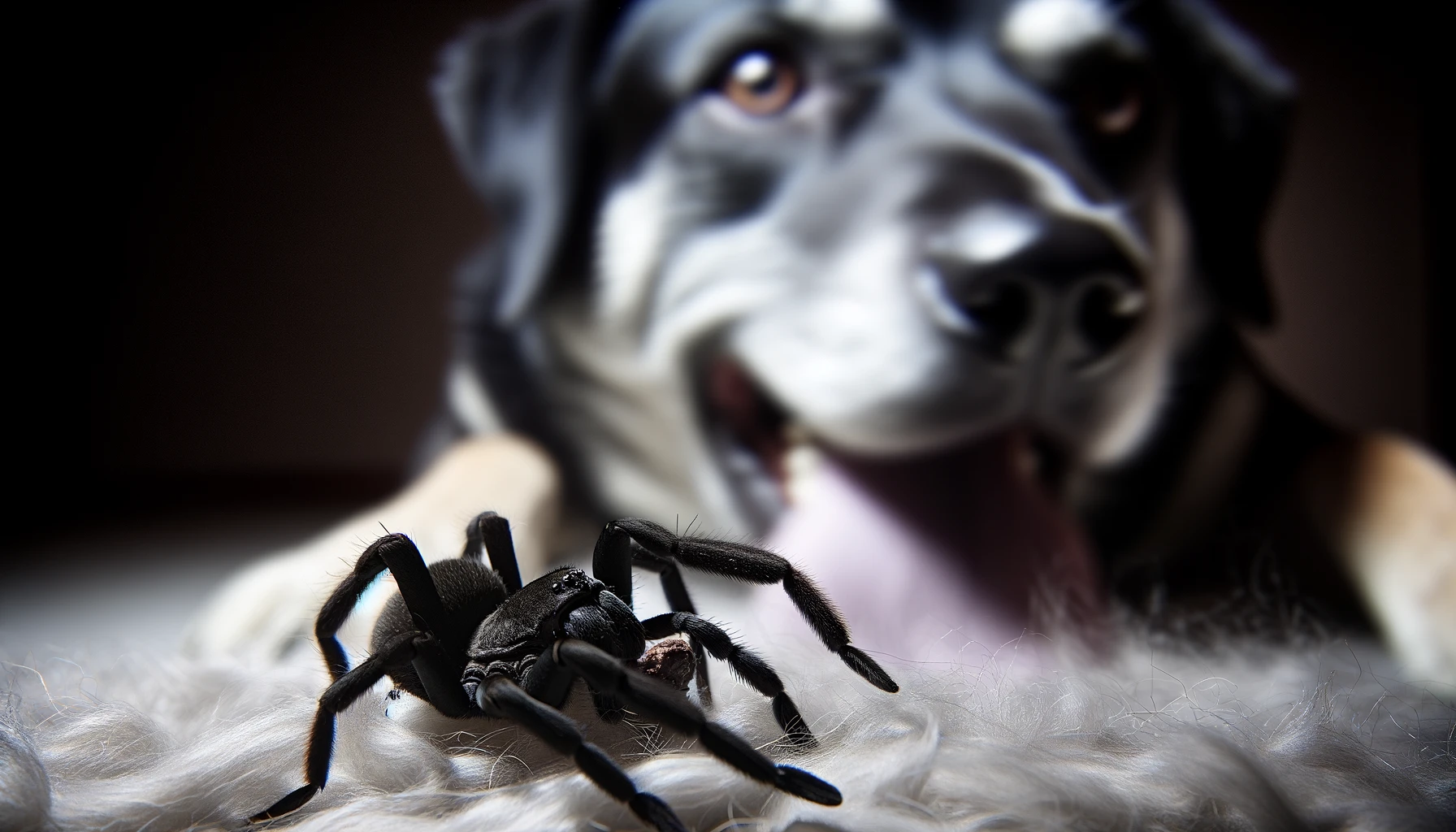
4, Mar 2024
What to Do if a Black House Spider Bites Your Dog
Finding out that your dog has been bitten by a black house spider can be worrying. Although black house spiders aren’t usually thought to be extremely toxic to people, their effects on canines can differ. To protect your pet’s health and safety, you must act quickly and intelligently. If you find yourself in this circumstance, there are important actions and preventative measures you may do according to this article.
Key Takeaways
- Immediate cleaning of the bite area and monitoring for symptoms is crucial.
- Consultation with a vet is recommended if any adverse reactions are observed.
- Preventive measures can reduce the risk of spider bites.
(TOC)
- Introduction
- Immediate Actions to Take
- Cleaning the Bite
- Monitoring Symptoms
- When to Consult a Vet
- Preventive Measures
- Understanding Black House Spiders
- Frequently Asked Questions
Immediate Actions to Take
Cleaning the Bite
The first step after identifying a spider bite on your dog is to clean the area thoroughly. Use mild soap and warm water to gently wash the bite site, which can help prevent infection and reduce the risk of complications.
- Gently press the area to remove any spider venom.
- Apply a cold pack to reduce swelling and discomfort.
Monitoring Symptoms
Closely observe your dog for any signs of adverse reactions following the bite. Symptoms can vary but may include swelling, redness, itching, or more severe reactions such as difficulty breathing, muscle weakness, or lethargy.
- Note any changes in behavior or health.
- Record symptoms to inform your vet if necessary.
When to Consult a Vet
If your dog shows any signs of distress or allergic reaction, it is imperative to consult a vet immediately. They can provide professional care and specific treatments such as antivenom, pain relief, or antibiotics to prevent infection.
- Seek immediate veterinary care for severe reactions.
- Follow the vet’s recommendations for treatment and care.
Preventive Measures
Taking steps to minimize the presence of spiders in and around your home can help protect your dog from future bites. Regular cleaning, sealing cracks and crevices, and using natural spider repellents can make your environment less inviting to spiders.
- Maintain a clean and clutter-free environment to deter spiders.
- Use natural repellents like peppermint oil around your home.
Understanding Black House Spiders
Understanding the behavior and habitat of black house spiders can aid in preventing encounters. These spiders typically prefer dark, secluded areas and are not aggressive by nature but will bite if threatened or accidentally pressed against the skin.
- Non-aggressive towards pets and humans but will defend themselves.
- Prefer to reside in undisturbed areas of the home.
Frequently Asked Questions
Do black house spiders pose a danger to dogs?
- Generally, black house spider bites are not lethal to dogs but can cause discomfort and localized reactions. Always monitor your pet closely and consult a vet if you notice any concerning symptoms.
Can spider bites cause long-term harm to my dog?
- Most spider bites, including those from black house spiders, do not cause long-term harm to dogs if treated promptly. Severe reactions are rare but possible, emphasizing the importance of veterinary consultation.
What are the signs of a spider bite on dogs?
- Signs can include a small puncture wound, swelling, redness, and signs of pain or itching. In some cases, systemic symptoms like lethargy or changes in behavior can occur.
- 0
- By Faizan Khan






